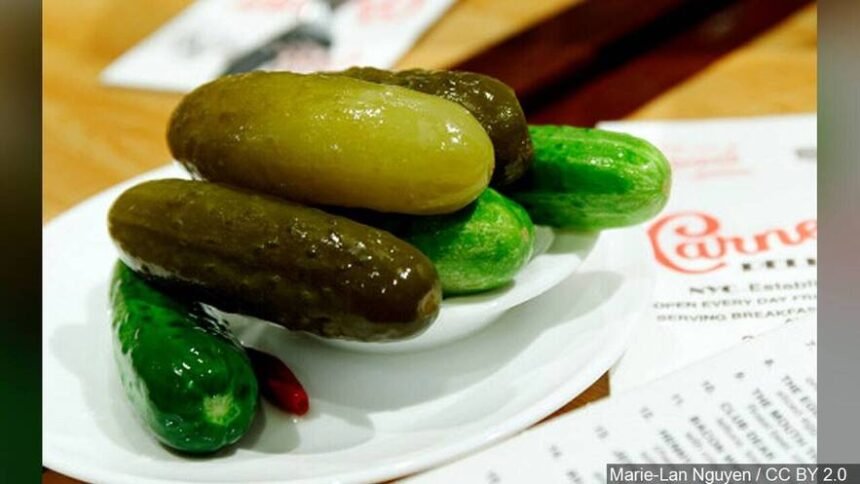National Pickle Day: 5 facts that make pickles a big dill

Dill, sweet, spears, bread and butter, chips…you name it, there’s a pickle for everybody. Regardless of your pickled preferences, it’s time to grab your favorite crunchy, vinegary snack to celebrate National Pickle Day, observed every year on November 14.
The term pickle comes from the Dutch word pekel, which means salt or brine. In honor of the holiday, here are five surprising facts about pickles.
Pickles are more popular than ever
So popular, in fact, that the Department of Agriculture says the average American eats an average of 9 pounds of pickles a year. Dill pickle slices used on hamburgers and in restaurants make up the majority of commercial pickle sales, accounting for 25 percent of the pickle market.
Across the US, Michigan takes the crown when it comes to pickle production, producing 236,700 tons of pickling cucumbers in 2016.
Pickles have played a role in ancient history
Cleopatra, the queen of Egypt, supposedly credited her health and good looks to her love of pickles, and Roman general Julius Caesar was said to have fed pickles to his troops in the belief that they would make them stronger. Archaeologists believe that ancient Mesopotamians were the first to start pickling in 2400 B.C., when they preserved cucumbers in acidic brine.
Pickles can help beat a hangover
In Russia, a glass of pickle juice from a jar of gherkins is a traditional hangover cure. The idea is that the salty brine will lead you to drink more water, something the body needs when it’s dehydrated. It’s a convenient and cheap choice when you can’t stomach the thought of solid food — and a walk to the fridge is as far as you can make it.
It may sound like a farfetched idea, but there is some science behind it.
The fermentation process of pickling creates digestive probiotics and the large quantities of salt helps replace electrolytes lost through dehydration.
Pickles are prepared in a variety of ways
States across the US all have their own unique techniques for preparing pickles. Ever heard of a Kool-Aid soaked pickle known as a Koolickle? This southern treat that originated in the Mississippi Delta is easy to prepare: Cut pickles into halves, soak them with sugar and Kool-Aid, and refrigerate for a week to get the perfect summer snack.
In Minnesota, pickle dogs are a fair food staple and, despite what the name suggests, they’re actually roll-ups, not hot dogs. Honey ham slices coated with cream cheese and wrapped around dill pickle spears may not sound healthy, but when compared to other fair treats like deep-fried butter, they’re not so bad.
Pickles must bounce, a famous myth says
In Connecticut, legend has it that state laws require that a pickle must bounce to legally be called a pickle. While the Connecticut State Library found that there are no laws that specifically state this, there are regulations in place that were started after a pair of pickle packers, Sidney Sparer and Moses Dexler, were arrested in 1948 for selling pickles that were “unfit for human consumption.”
After their arrest, Food and Drug Commissioner Frederick Holcomb told reporters that the best way to check for good pickles is too see if they bounce when dropped. Afterward, the state’s pickle-bouncing regulation went into effect.




